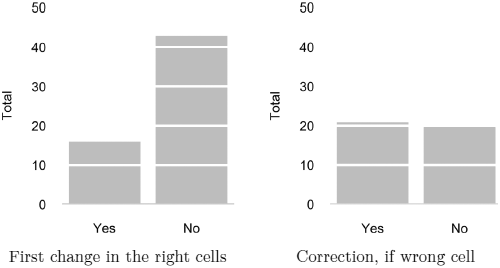Authors
Daniel Kulesz, Verena Kafer, & Stefan Wagner
Abstract
Spreadsheets are flexible tools that can be found in almost any project. Since many wrong decisions have been made due to faulty spreadsheets in the past, the question how these faults were introduced in the first place is of major concern.
As spreadsheets are often shared between many workers, it is not uncommon for spreadsheet users to be asked to maintain a spreadsheet they have never seen before. In prior work, we conducted two studies where 17 end-users and 42 undergraduate computer science students had to perform corrective and adaptive maintenance to a spreadsheet unfamiliar to them.
This work provides an exploratory analysis of the effort these participants spent to get familiar with the spreadsheet before doing the first changes.
The results indicate that both beginners and advanced spreadsheet users started changing the spreadsheet prior to exploring its structure and inner workings in depth. More than 2/3 of the users performed changes which violated the original spreadsheet's design and structure. Only in about half of these cases the users recognized and corrected their errors later.
Yet, surprisingly, the effort spent on getting familiar with the spreadsheet and the likelihood of not damaging its original design and structure or recognizing such an error during maintenance seem unrelated.
Sample

Spreadsheet users tend to simply do changes first and think about them later.
It is alarming to see that more than 2/3 of our population broke the spreadsheet's original design and structure with their first changes.
Half of these participants corrected this error later, while the other half did not.
Publication
2017, IS-EUD 6th International Symposium on End-User Development, June, pages 43-58
